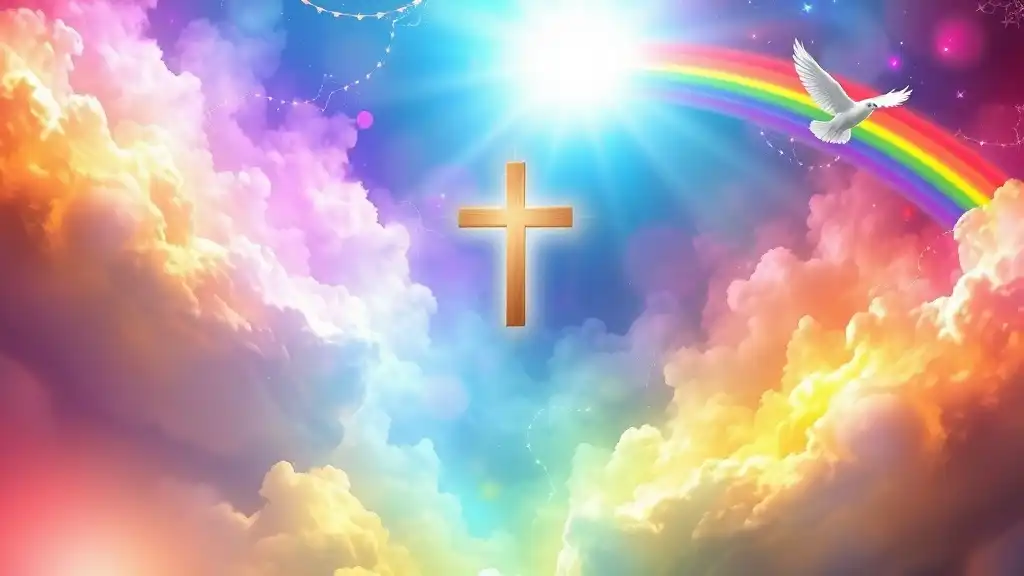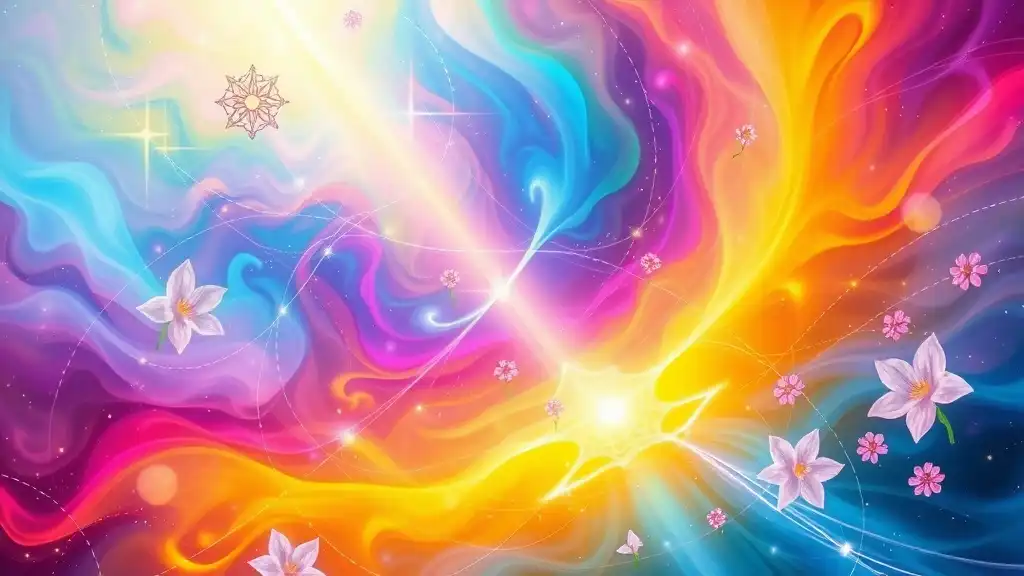The significance of colors in spiritual contexts is profound, especially when we delve into the rich tapestry of the Bible. Each color mentioned in scripture carries its own unique divine meaning, revealing insights about human experience, the nature of God, and the spiritual journey. Understanding these spiritual meanings can deepen our connection to the text, offering not only context but also a pathway to personal reflection and growth.
The Symbolism of Colors in the Bible
The Role of Colors in Biblical Texts
In biblical literature, colors are more than mere descriptions; they are symbols that convey complex spiritual truths. Throughout the scriptures, colors evoke emotions and illustrate the gravity of divine messages. For instance, red may symbolize the horrendous price of sin while blue can represent heavenly aspirations. Notable biblical passages often include a palette of colors to enhance the narrative and embed their meanings within the very fabric of the story.
Why Colors Matter Spiritually
Colors have a significant connection to emotions and spiritual states. They can resonate with our feelings, reflections, and prayers. In many religious practices, colors are integral to rituals. For instance, the vestments of priests, the decorations of churches, and even the colors associated with certain festivals draw upon the meanings of colors to heighten the spiritual experience. In worship, colors can create an atmosphere conducive to divine presence, allowing individuals to more fully engage with their faith.

Detailed Spiritual Meanings of Key Colors
Red
Red is a powerful color that embodies sacrifice, sin, and redemption. In the Bible, it is often associated with the blood of Christ, symbolizing the ultimate sacrifice made for humanity’s sins. This color invites contemplation on themes of atonement and the cost of sinfulness. When we see red in scripture, such as in the Passover where lamb's blood saved the Israelites, it serves as a reminder of God's mercy and the value of redemption.
Blue
Blue represents heaven and divine revelation. It conveys tranquility and depth, often associated with the sky and the ocean, reminding believers of the vastness of God's kingdom. In the construction of the Tabernacle, blue was used for curtains, signifying the heavenly origins of worship and the need for spiritual elevation. Engaging with the color blue can inspire us to seek divine truth and connection to heaven.
Yellow/Gold
The colors yellow and gold radiate divinity, glory, and faith. Gold, in particular, symbolizes divine purity and holiness, often referred to in conjunction with God's grand presence. In scripture, gold is used to adorn the temple, demonstrating its sanctity and value. Believers might reflect on the richness of their faith and the glory of God's love when invited to consider the vibrant shine of these hues.
Green
Green embodies renewal, growth, and flourishing. It is the color of life, found throughout the natural world, and symbolizes the freshness of God’s creation. The imagery of "green pastures" in Psalm 23 offers comfort, portraying God as a generous shepherd who provides sustenance and safety. In personal reflection, green can inspire feelings of rebirth and spiritual rejuvenation, encouraging individuals to embrace new beginnings in their journey with God.
Purple
Purple represents royalty, wealth, and spiritual authority. As the color associated with kings and rulers, it signifies the majesty of Christ and His kingship. In the story of Christ’s crucifixion, the soldiers dressed Him in a purple robe, mockingly acknowledging His title. This symbolism invites believers to recognize the royal nature of Jesus while challenging them to consider their own lineage as heirs to the kingdom of God.
White
White symbolizes purity, holiness, and righteousness. It is the color of unblemished innocence, often referenced in descriptions of heavenly beings. When the scripture mentions white garments, as seen in Revelation, it invites believers to reflect on their sanctification and the purity that comes through faith. Engaging with the color white can inspire a deep yearning for righteousness and connection with God's presence.
Black
Black is often associated with mourning and death, evoking feelings of sorrow and loss. Yet in biblical texts, black can also serve as a poignant reminder of the gravity of sin and the reality of spiritual struggles. It encapsulates the concept of darkness in contrast to the light, embodying the dichotomy of good and evil present in humanity. Engaging with the color black can prompt introspection about personal struggles and the need for hope through God’s grace.

Using Colors in Modern Spiritual Practice
Incorporating Biblical Colors in Daily Life
In our modern lives, understanding the spiritual meanings of colors can enhance our devotional practices. One might consider wearing garments in particular colors during prayer or meditation, allowing the hues to influence the spirit during these sacred moments. Surrounding oneself with objects of specific colors can create an environment conducive to reflection and reconciliation with God.
Creating a Color-Inspired Worship Space
Designing a worship space infused with spiritual colors can be transformative. Color choices should reflect personal spiritual journeys; incorporating a combination of these colors may create a dynamic environment for prayers, meditation, and worship. Whether it’s using colored candles, wall decor, or fabric elements, intentional use of color can foster a deeper awareness of God's presence in worship.

Conclusion
The spiritual meanings of colors in the Bible offer a rich field for exploration and growth. Each hue, laden with significance, can illuminate our understanding of scripture and enhance our spiritual practices. By engaging with these colors thoughtfully, we can deepen our connection to God and invite divine inspiration into our lives. Reflecting on the beauty and meanings of colors can help us embark on a journey of spiritual enrichment and deeper faith.



















